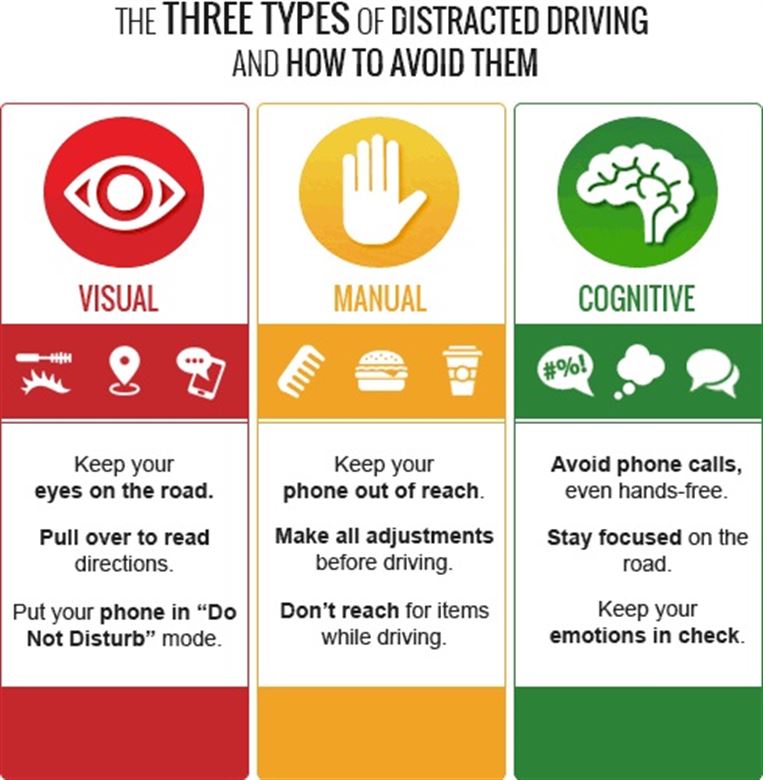The following is a media release from Sen. Ed Markey, who was elected by voters in the Commonwealth of Massachusetts to serve the state in Washington DC in the US Senate. He is a Democrat.
***
[broadstreet zone=”51611″]
WASHINGTON DC – Senators Edward J. Markey (D-Mass.) and Richard Blumenthal (D-Conn.), members of the Commerce, Science, and Transportation Committee, yesterday, July 1, introduced a package of four bills designed to improve automotive and traffic safety across the United States.
The lawmakers are releasing these proposals in advance of the Senate Commerce Committee’s consideration of a “safety” title for Congress’s broader surface transportation reauthorization legislation.
“In 2019, an estimated 38,000 people lost their lives in car crashes, while over 4 million people were seriously injured,” said Senator Markey. “These numbers repeat year after year and reveal a public health crisis that we must not accept as inevitable. We can prevent these unnecessary tragedies with proven strategies and technologies. That’s why I am proud to introduce a robust legislative package that will address several of the most dangerous safety issues on our roads. As Congress debates infrastructure and surface transportation reauthorization, I will fight for these bills and ensure that safety is at the forefront of everything we do.”
[broadstreet zone=”53820″]
“Despite decades of auto safety advancements, it is still true that one of the most dangerous things you can do is get in a car,” said Senator Blumenthal. “Senator Markey and I have partnered on a comprehensive package of legislation that will put safety back in the driver’s seat – addressing dangerous auto recalls, defect investigations, distracted driving, and seat back standards. Any discussion of transportation programs must include steps to protect the lives of drivers and passengers, and these proposals are the right place to start.
The first bill – the Promoting Auto Recalls Toward Safety (PARTS) Act – increases the speed and effectiveness of motor vehicle recalls in the wake of lessons learned from the infamous Takata recall. The PARTS Act will specifically authorize the U.S. Department of Transportation (DOT) to provide grants to states for use in notifying registered motor vehicle owners about manufacturer-issued safety recalls, as well as require additional reporting and an annual scorecard on how effectively automakers are completing any recalls.
A copy of the PARTS Act can be found HERE.

The second bill – the Early Waning Reporting Systems Improvement Act – fills a safety gap created by the historically low number of defect investigations launched by the National Highway Traffic Safety Administration (NHTSA) in recent years. The legislation ensures that auto manufacturers will provide more information about incidents involving fatalities and serious injuries directly to the public. It will also require NHTSA to make the information it receives publicly available in a user-friendly format, so that consumers and independent safety experts can evaluate potential safety defects themselves.
A copy of the Early Warning Reporting Systems Improvement Act can be found HERE.
The third bill – the Stay Aware for Everyone (SAFE) Act – tackles the threat of distracted driving; a problem that is only increasing with the proliferation of “driver assistance” technologies that can encourage complacency if misused on the road. The SAFE Act will specifically require the DOT to study how driver-monitoring systems can prevent driver distraction, driver disengagement, automation complacency, and the foreseeable misuse of advanced driver-assist systems, as well as require a rulemaking to mandate the installation of driver-monitoring systems based on the results of this study.
A copy of the SAFE Act can be found HERE.
[broadstreet zone=”59984″]
The fourth bill – the Modernizing Seat Back Safety Act – addresses the thousands of preventable fatalities and life-threatening injuries that have occurred because of motor vehicle seat failure during a collision. The legislation will require NHTSA to update its standards for seat back integrity in new cars, an essential action that NHSTA has neglected to take for more than fifty years despite repeated tragedies. Just a few examples include the following:
- Andy and Liz Warner and their children suffered a devastating loss when their daughter and sister, Taylor Grace Warner, was killed in 2010 at just 17 months old when the front seat of their family car collapsed on top of her when they were struck from behind.
- “Tragically our family is not alone in experiencing this type of unthinkable loss,” said the Warners. “Hundreds of children have been killed and many more have been seriously injured because of seat back failure. This could be prevented with action by the National Highway Traffic Safety Administration to update the safety standard, which this bill would require. Senators Markey and Blumenthal have been advocating for auto safety and supporting the cause for change in honor of our daughter and the others needlessly killed or injured. Our family thanks them for their leadership on this issue and urges Congress to pass this legislation.”
- Jayden-Faith Fraser suffered a traumatic brain injury and had to be placed in a medically induced coma after her family’s vehicle was struck from behind in November 2016. While she has made great progress, Jay-Fay still cannot walk or talk and may never lead a completely independent life.
- “On Thanksgiving 2016, our family was returning from our annual tradition of feeding the homeless, when our vehicle was hit from behind and our lives were changed forever,” said Michelle and Jason Fraser, parents of Jayden-Faith Fraser. “The driver’s seat of our car collapsed rearward resulting in a catastrophic injury to our precious daughter. A front seat should never be the instrument of destruction that destroys anyone’s life, especially a child. No one should have to experience the pain and trauma that our daughter, Jay-Fay, has suffered over these last four years. No parent should know the fear of not knowing whether their child would live or die. NHTSA, the vehicle industry and the seat industry have known for years that collapsing seats were killing or maiming our most precious cargo, children just like Jay-Fay. It’s not rocket science – the technology to prevent these injuries and deaths has been available for decades. We are grateful to Senator Markey and Senator Blumenthal for working to put pressure on the vehicle industry and the seat industry to build safe seats that are strong enough to protect everyone in the vehicle equally, and to require NHTSA to make sure no family will have to go through what our family has gone through. It will never be too soon to prevent another catastrophe.”
- Kristi and Ben Reavis’ vehicle was rear ended in 2016, causing both front seats to fail. When their seatbacks collapsed, both parents slid under their seatbelts and launched into their children seated behind. Seven adults involved in the collision walked away from the wreck, but Emily (5) and Owen (3) were rendered comatose, with fractured skulls and traumatic brain injuries.
- “Parents are told that children must ride in the back seat,” said Kristi and Ben Reavis, parents of Emily and Owen. “It shouldn’t take an act of Congress to ensure back seats are as safe as the front. Our children face a lifetime of challenges and terrifying health implications. This is a consequence of decades of failure by the Department of Transportation to hold the auto industry accountable for designing seats to protect all occupants. A change in the law is long overdue, so we are tremendously grateful to Senators Markey and Blumenthal for sponsoring this legislation.”
A copy of the Modernizing Seat Back Safety Act can be found HERE.
[broadstreet zone=”58610″]
All four bills have been endorsed by Advocates for Highway and Auto Safety, the Center for Auto Safety, Consumer Reports, Consumer Federation of America, the National Consumers League, Consumers for Auto Reliability and Safety, Safety Research and Strategies, Safe Roads Alliance, EndDD.org, and StopDistractions.org.
“Once again, Senators Edward Markey and Richard Blumenthal are taking bold initiative on behalf of consumers,” said Joan Claybrook, Former Administrator, National Highway Traffic Safety Administration. “In this case, they have targeted weaknesses in our Nation’s auto safety laws that are crying out for attention. Improving the NHTSA vehicle recall program, getting better data to identify safety defects, requiring an update to the safety standard to stop deadly incidents of seatback failure, and harnessing the potential of driver monitoring to reduce distracted driving — all are proactive steps that the federal government have let languish for far too long. With these four pieces of legislation, Senators Markey and Blumenthal are spurring action where it is critically needed. I urge Congress to adopt these commonsense reforms without further delay.”
“Senators Edward Markey and Richard Blumenthal have always put consumers first and their actions today reflect that commitment and get-it-done tenacity,” said Cathy Chase, President, Advocates for Highway and Auto Safety. “The bills introduced today take direct aim at the preventable annual motor vehicle death toll of more than 36,000 people. They have developed more transparent and efficient processes for ensuring recalled vehicles with dangerous safety defects get identified and repaired, demanded action on upgrading and improving the outdated standard for seatbacks, and directed research on technology that could curb the scourge of distracted driving. Never ones to rest on their laurels of having received highway safety leadership awards in 2014 and 2019, Senators Markey and Blumenthal continue to champion important upgrades to make the Nation’s roads safer.”
[broadstreet zone=”59948″]
“Decreasing the horrific death and injury toll caused by car crashes takes leadership, technology, and a desire to put consumers first. That is why the Center for Auto Safety is thrilled to see the package of motor vehicle safety bills put forth today by longstanding consumer safety champions Senators Markey and Blumenthal. They know that when affordable, innovative, and data driven solutions are available they must be deployed to save consumers’ lives,” said Jason Levine, Executive Director, Center for Auto Safety. “The SAFE Act prioritizes using driver monitoring system technology to reduce, and maybe one day eliminate distracted driving, which is one of the leading causes of the 100 car crash deaths suffered in the United States every day. The PARTS Act will help close the stubborn recall completion gap, a gap that has put 70 million dangerous unrepaired recalled cars on our roads, often because owners are unaware there’s a defective vehicle sitting in their driveway. The Early Warning Reporting System Improvement Act will update a program that has failed – as demonstrated by NHTSA’s inability to detect and act on even the most widespread deadly defects, including GM ignition switches and Takata airbag inflators. Finally, over the half century since the performance standard for seatback design was written, thousands of consumers have been killed or catastrophically injured by a standard so weak it could be passed by a lawn chair. After decades of delay by the auto industry which resulted in far too many preventable tragedies, particularly to children, the time has finally come to end the nightmare of seatback failures. The Modernizing Seatback Safety Act does exactly that.”

“NCL strongly endorses auto safety legislation that is very much needed to address distracted driving, more robust recall completion rates, early warning systems to identify defects and improve seat back strength,” said Sally Greenberg, Executive Director, National Consumers League. “Thanks to longtime consumer champions in the US senate – Senators Ed Markey and Richard Blumenthal – for introducing this important measure.”
“Our auto safety laws need a tune-up,” said William Wallace, manager of safety policy, Consumer Reports. “The new legislation by Senators Markey and Blumenthal would help identify safety defects earlier and get more recalled cars off the road. It would cut down on distracted driving and make seat backs stronger so that they don’t leave people at greater risk in a crash. Consumer Reports commends the lawmakers for their critical work to repair what’s broken or missing in the laws protecting consumers on our roads.”
“Safe Roads Alliance is grateful to Senator Markey and Senator Blumenthal for their leadership on these critical auto safety issues,” said Emily Stein, President of the Safe Roads Alliance. “At a time when we need more federal action and oversight, these Senators are showing their colleagues the importance of addressing distracted driving and other traffic safety issues at a federal level. We applaud them for taking a strong stand to reduce the fatalities and injuries caused by distracted driving.”
[broadstreet zone=”59983″]
“While the country rightfully focuses on addressing the COVID-19 pandemic, Senators Markey and Blumenthal have not forgotten about the dramatic impact that vehicles have on the public health of our nation,” said Jack Gillis, Executive Director, Consumer Federation of America and author of The Car Book. “We strongly support their efforts to address the millions of recalled vehicles on our highways, the need for better reporting to uncover safety defects, protecting rear seat passengers from dangers posed by the outdated seatback standard and addressing the serious problem of distracted driving.”
“Tragically, COVID-19 is not the only health and safety threat our nation faces,” said Rosemary Shahan, President, Consumers for Auto Reliability and Safety. “We applaud Senators Markey and Blumenthal for continuing to champion protecting motorists and their families from deadly defects that claim precious lives.”
“SRS is pleased to support these bills – particularly the provision that requires NHTSA to upgrade FMVSS 207,” said Sean E. Kane, President, Safety Research & Strategies. “The current standard has been completely irrelevant for decades. NHTSA’s recent study confirmed what others have found: limiting the seat back rotation in rear impacts prevents injuries to occupants in the seat as well as those seated behind them. While some manufacturers have made incremental improvements to their seat designs, absent a standard that requires a level of safety based on research and data, motorists can’t be assured that this critical part of the vehicle’s restraint system will protect them or their rear seat passengers.”
***

